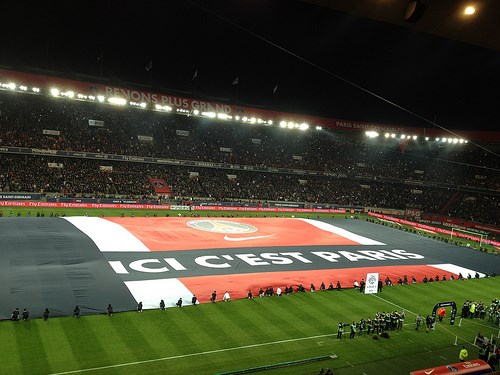Qatari sponsorship tests UEFA’s financial fair play

Paris SG's sponsorship deal might test UEFA's FFP. Photo: Parc des Princes (c) Arash Derambarsh/Flickr
28.09.2012
By Play the GameIn a comment piece, International Marketing Reports (IMR) questions if the €100 m a year sponsorship deal which French football club Paris Saint Germain (PSG) is reported to sign with a Qatari bank, is legitimate under UEFA’s Financial Fair Play (FFP) rules.
According to the comment piece, the sponsorship deal for shirt and stadium naming will seriously test the FFP rules given the huge size of the sponsorship. UEFA implemented FFP in order to balance the economical power between clubs and avoid overspending and financial injections from rich benefactors.
“To put the sum into context, €100 million represents more than three times the entire shirt sponsorship income of Ligue 1 in 2011/12,” IMR writes, referring to a report from Sponsorship Today.
“At the time Barcelona had the largest annual deal in Europe at €32 million per year with the Qatar Foundation, but this has since been surpassed by Manchester United’s controversial deal with Chevrolet, which has been reported as peaking at €62 million in 2021.”
Even though PSG has significantly raised its profile during the last seasons with signings of big player profiles and has a growing attendance level, IMR sees little evidence that “PSG’s shirt sponsorship value could exceed €20 million per year”.
If this estimation is true, it leaves €80 million (from the total €100 million) for the stadium naming rights, and according to the comment, this by far exceeds the actual value. IMR argues that the naming right of “the Parc de Princes is arguably worth €20 million per season at most.” Furthermore IMR predicts that the naming right issue will entail public debate in France where naming rights are quite rare.
“It is therefore difficult to see how the total sponsorship value for primary shirt and naming rights of PSG could currently exceed €40 million per season. As such, UEFA will be under huge pressure from other clubs to scrutinise this deal if it is to enforce FFP,” the comment piece concludes.
Read the entire comment: PSG's €100m deal challenges UEFA FFP rule





